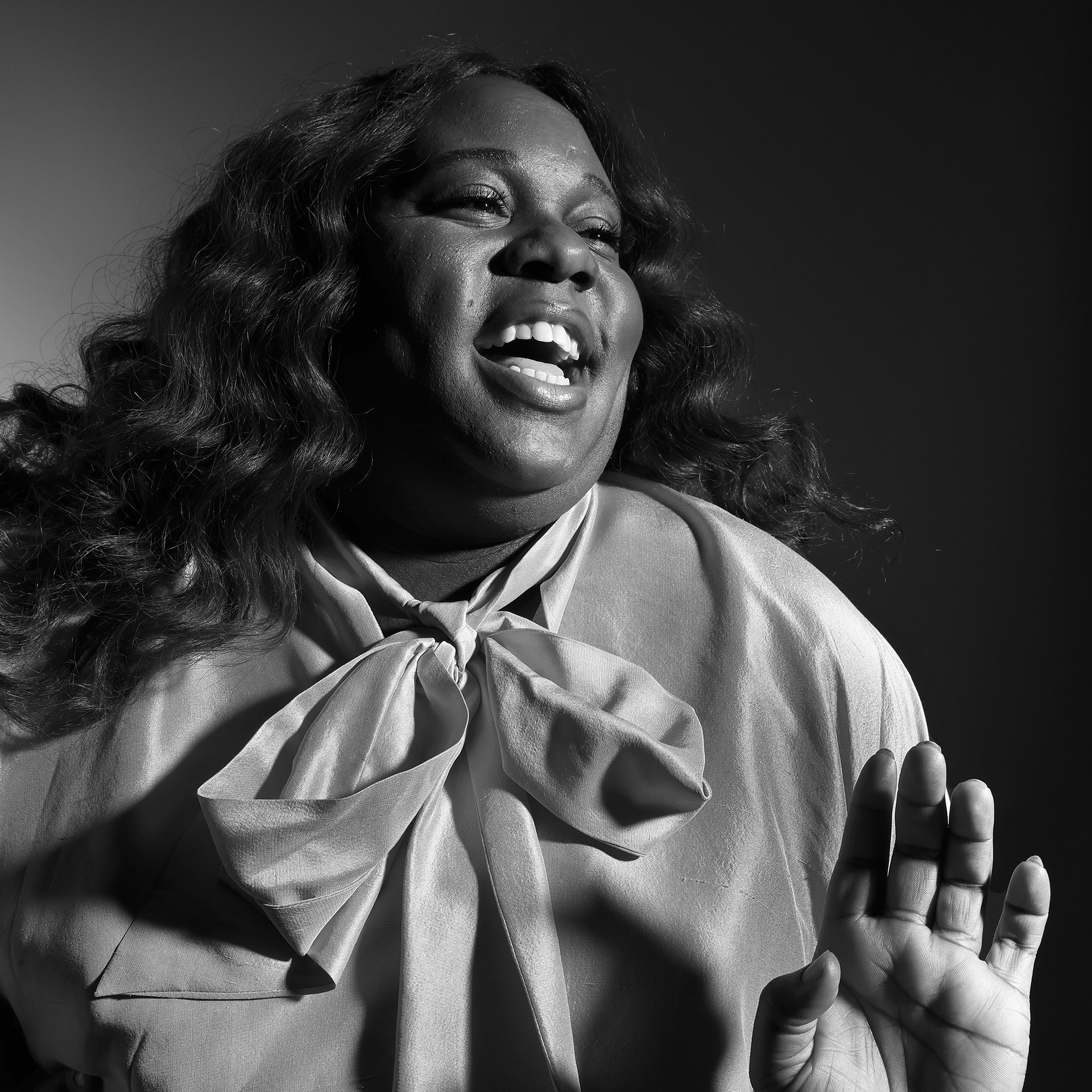About a year ago, Alex Newell had just returned to New York City after the pre-Broadway tryout of the musical Shucked in Salt Lake City. A Utah alt-weekly was already calling Newell’s number “Independently Owned,” sung from the perspective of the self-reliant whiskey distiller Lulu, a “knockout show-stopper.” Broadway agreed: in June, Newell won the Tony Award for Best Featured Actor in a Musical, becoming one of the first two out nonbinary people to win in an acting category, alongside Some Like It Hot’s J. Harrison Ghee.
But Newell started breaking boundaries long before the corn-centric musical comedy opened on the Great White Way in April. Their breakthrough role—as Unique Adams on Glee in 2012—was one of the first transgender characters on prime-time TV. Five years later, they made their Broadway debut in the revival of Once on This Island. In 2020, they played the gender-fluid DJ Mo in the musical NBC series Zoey’s Extraordinary Playlist. Ahead of the Tonys, in May, Newell told TIME that winning the award would just be a cherry on top of what they had already achieved: “I created a lane for somebody after me to come and do exceptional. I have created space and created conversation and made the ruckus to create active change.”
In late November, Newell spoke to TIME again, about what it really felt like to win that Tony, their vision for their career as an artist, and their ideal role.
What was going through your head when you won the Tony?
It was the perfect storm. You think about, “Well sh-t, how am I gonna get up these stairs? Will I fall if I go up these stairs? It’s really, really hot. This could be anyone’s. Please say my name.” You have everything spiraling at one time. My mother could feel me shaking, and she just grabbed my hand.
Your father was a deacon, and you grew up singing in church. What role does faith play in your life now?
The lessons and values that I’ve learned by being someone that was raised in the church still hold true to me. I always look at my faith as something to pour into for places of solace or security through anguish. If I’m going through a hard time, it’s something that I can give that hardship to. It’s something that I can unburden that to, rather than holding it in all the time.
What are you trying to give the world as an artist?
Normalcy. I want every story that someone has, that’s personal to them, to be something that is not taboo, but normal. I don’t want to ever feel othered, and I don’t want anybody else like me to feel [othered]. I want any story that I tell to just be another run-of-the-mill story that just happens to look like me and be who I am.
Between your Tony win and J. Harrison Ghee’s, theater seems to be taking strides toward greater inclusivity. Does that feel true to you?
I can see them trying. I can feel them trying. And you know, with trying comes mistakes, and with trying comes error. You might not always see the incremental change, but you can feel the bubbling of it. It’s taking another step forward. You can start a fire, but can you keep that flame growing and maintain it, or do you let it fizzle and die out?
You’ve said your dream role is Effie from Dreamgirls. Why is that?
Effie rang so true to who my career has almost modeled in a way: Being told you were too loud or too big or too boisterous or too much. It’s this give-and-take of growing up in this industry and being plus-size and other and different: They want you for one thing, but don’t want you for the other thing. And when you become a little too shiny, they want to dim that light a little bit.
I have to think that an end date in sight for Shucked—on Jan. 14, after 10 months of work—must feel good.
Honey, I see the light at the end of the tunnel, and she’s blinding, and I can’t wait to bask in her.
More Must-Reads From TIME
- The 100 Most Influential People of 2024
- Coco Gauff Is Playing for Herself Now
- Scenes From Pro-Palestinian Encampments Across U.S. Universities
- 6 Compliments That Land Every Time
- If You're Dating Right Now , You're Brave: Column
- The AI That Could Heal a Divided Internet
- Fallout Is a Brilliant Model for the Future of Video Game Adaptations
- Want Weekly Recs on What to Watch, Read, and More? Sign Up for Worth Your Time
Contact us at letters@time.com



